"I wrote my will at the age of 19": three stories of servicemen who were seriously injured in the war
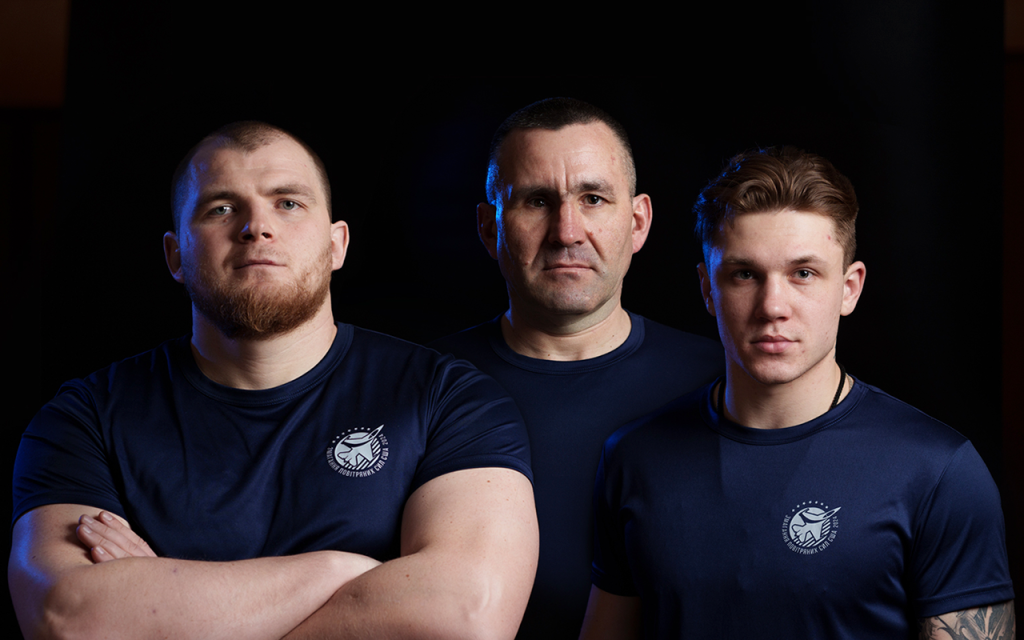
On March 8, the United States Air Force Trials 2024 adaptive sports competition will begin in Las Vegas. The team that will represent Ukraine in the United States consists of 30 veterans and servicemen who were seriously injured in combat. Each participant has a painful story that changed his or her life forever. Despite the hard experience of war, these people are eager to show the world their fortitude and invincibility.
The journalist of the Come Back Alive Foundation talked to three members of the team, here are their stories:
Ruslan “Tiger” Sumin, 30, Chernihiv region
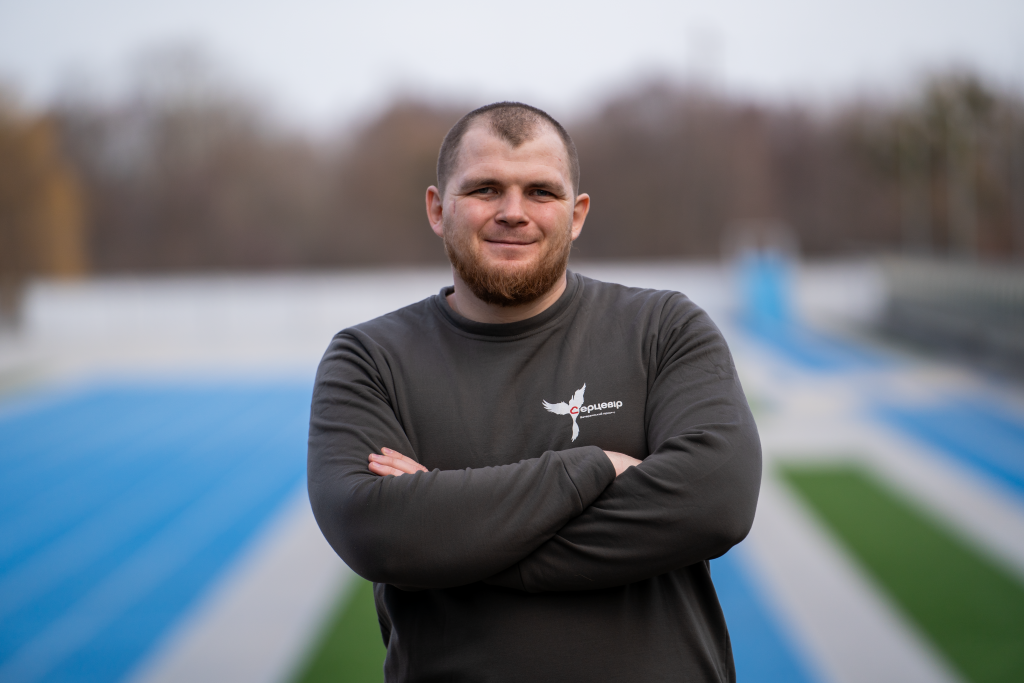
Duty to protect
— In 2014, at the age of 20, I went to the front to prevent the war from coming to my native city, Chernihiv. At the time, I did not fully understand what I was to face. However, if I could change the past, I would have made the same choice.
I served for a year in the 13th separate motorised infantry battalion as a machine gunner. I fought in the Luhansk region, then was sent to the Donetsk region, got to Debaltseve, and fought near Vuhlehirsk, Artemivsk, Zaitseve, and Horlivka. During that time, I got four contusions and a light injury.
It was hard after demobilisation. I went to work as a supplier’s representative in a hardware store. I had to constantly communicate with people, where you’re not supposed to show your temper or be rude. Sometimes I was fuming , but I had to restrain myself. I started doing sports, it calmed me down, it was a kind of rehabilitation.
I found out about the full-scale Russian invasion when I heard a rocket fly over my house in Pozniaky, Kyiv. I immediately called my military unit. When I took my wife and our four-year-old daughter to safety, away from the fighting, I went to the military enlistment office.
A commander is a priority target
I joined the 71st separate airborne ranger brigade as a deputy group commander. Then I was promoted to be a commander. After a short training, we went to Izyum.
In early April, one of our groups was shot at on the road by russian saboteurs. Eight people were killed. The enemy left the bodies on purpose. Three days later, the command allowed us to come and get them. We realised that there were serious troops fighting against us, so only those who were ready to take all the risks went to that operation. We gathered about 40 people. We evacuated our fallen comrades, returned, and prepared for the mission. Then the mortar attack started. It turned out that the enemy had been following us up to the base with drones. The russian artillery was at the three sides of the base. I had never seen such a density of missile attacks before.
They fired over 120 mines at us in two hours
That day, they fired over 120 mines at us in two hours. We had no shelter or trench because we had just arrived at that position. We decided to go around the enemy. As a commander, I led my men. Three enemy drones were hovering above us. The enemy saw a group of people and started firing mines in rows. We fell to the ground. A mine fell a metre from my head, and all the shrapnel flew at me.
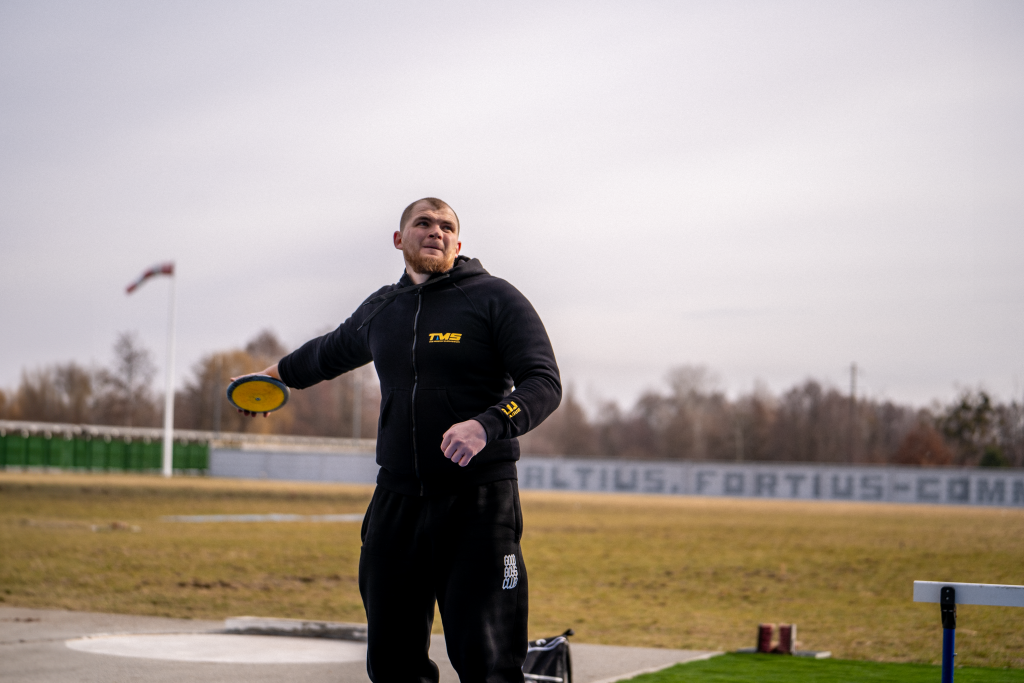
We all survived. There were a few lightly wounded soldiers, I was the only heavily wounded one. I understand that the Russians were spying on me because I had a radio. That is, they realised that I was the commander and wanted to kill me. When a commander is killed, the whole group falls apart.
Both my legs were wounded. I put a tourniquet on the right one, but I had no tourniquet for the left one. I had been bleeding there for 2.5 hours because they were unable to evacuate me under fire.
I realised that I would not survive. So I told the guys to leave me there. I weighed about a hundred kilograms, and it would have been too risky and difficult to pull me out. When it became a little calmer, my deputy found a tent and that’s how they carried me out. First, they took me to Lozova. But the doctors there refused to perform the surgery because it was too complicated for them. I had to go to Kharkiv. The whole evacuation took almost five hours in total. In the hospital, I told them about my rank, the place and the conditions of my injury and then I just passed out.
I lost 4.5 litres of blood. Both my kidneys failed. My right foot was amputated. My left leg was miraculously saved.
I had a clinical death. I had lost 4.5 litres of blood. There was little chance of survival. Both kidneys failed, I was kept on hemodialysis for a day. My right foot was amputated. My left leg was miraculously saved, although they planned to cut it off as well. However, I was very lucky.
The way to life
Right after I was wounded, I saw that three toes were missing on my foot. I remember thinking: “It’s okay, I’ll return to the front in a couple of months”. When I woke up in the hospital, I realised that my rehabilitation would take longer. It was hard to think that I would no longer be able to do sports. It was something that used to give me a lot of strength, which I really needed after my injury.
After the hospital, I was using a wheelchair to get around. Due to the fact that I had been lying there for a long time, my whole body was atrophied. Rehabilitation took eight months, during which I travelled to special centres and worked out with trainers. At the same time, I had my first prosthesis fitted. Later it turned out that it was designed for older people who just needed to move around somehow – not for young people who are planning an active life.
The prosthesis will be made specifically for me in the United States and I will be able to run and hopefully return to the front.
In Ukraine, there is a big problem with prostheses for those who have kept their heels. I was even offered a re-amputation – to cut off my leg higher up. Later, through charitable foundations, I managed to get a better prosthesis. But it is not very comfortable, so I plan to get another one. It will be made specifically for my case in the United States, and I will be able to run and hopefully return to the front.
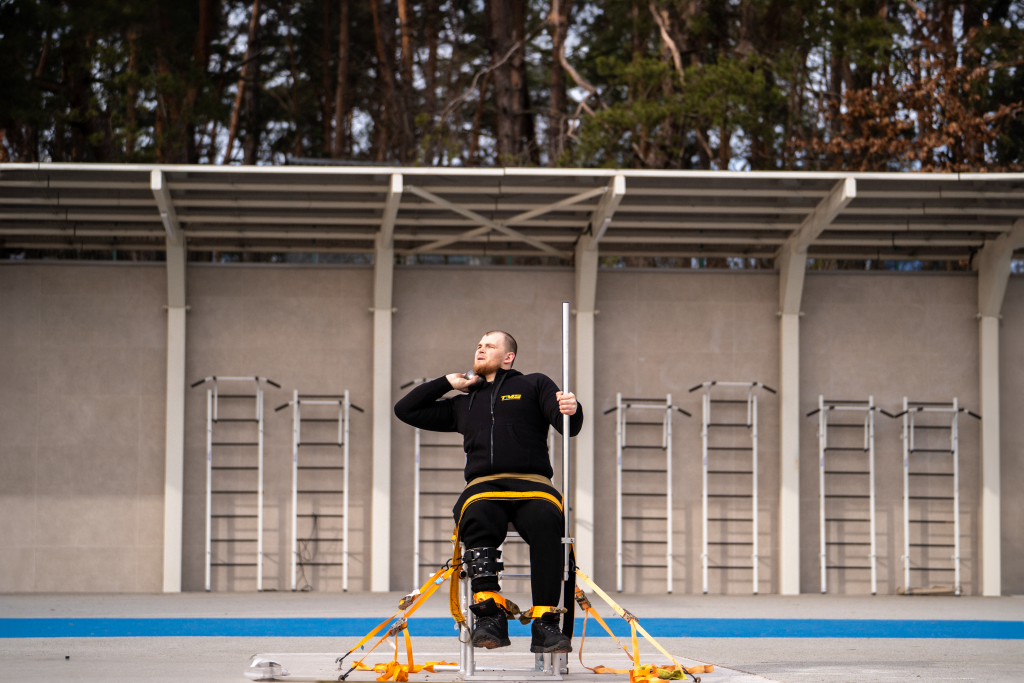
When I was able to walk, I met a Brazilian jiu-jitsu coach who conducts classes for soldiers after they were wounded. He has a special approach to each case. He works very well with people with double amputations and spinal cord injuries.
I like the idea of adaptive sports so much that I would like to scale it up. I would like to promote it so that such classes or even centres are available in every city. We need to inform communities that this is a very important aspect of rehabilitation for soldiers with disabilities that allows you to renew yourself both physically and mentally.
Through adaptive sports, I met a lot of people who became my friends and found many like-minded people. This is a supportive community. Here you can share experiences and share the joy of your achievements.
My first competition was in Kyiv last year at “The Strong of Ukraine” competition. This is an all-Ukrainian adaptive sports tournament for veterans and active military personnel who had been injured during combat operations. After that, I realised that I could improve my results. Three months later, I went to compete in Rivne, then Chernihiv.
Eventually, I applied for the United States Air Force Trials 2024, and I was selected for the team. In Las Vegas, I will represent Ukraine in several sports: shot put, discus throw, sitting volleyball, and rowing.
Being useful for the country
I can’t return to the front now, although I really want to. A year and a half after being wounded, I went to the Obukhiv Regional Territorial Recruitment Center. There, the new military commissar recruits only those who are limited fit after combat wounds. At the recruitment centre, I deal with deferrals from mobilisation, it’s a sedentary job with a computer.
90 percent of the employees of the Obukhiv Regional Territorial Recruitment Center are soldiers with injuries
90 percent of our employees have injuries. There are those whose wounds are not visually obvious – for example, internal organs have been removed or there is a prosthesis under the uniform. There are also those who are over 55 and cannot return to the front for health reasons. All of them will not be discharged from service until the war is over, so they go to work in the TRC. It turns out that the military hand out draft notices face hatred and aggression, although they deserve a completely different attitude.
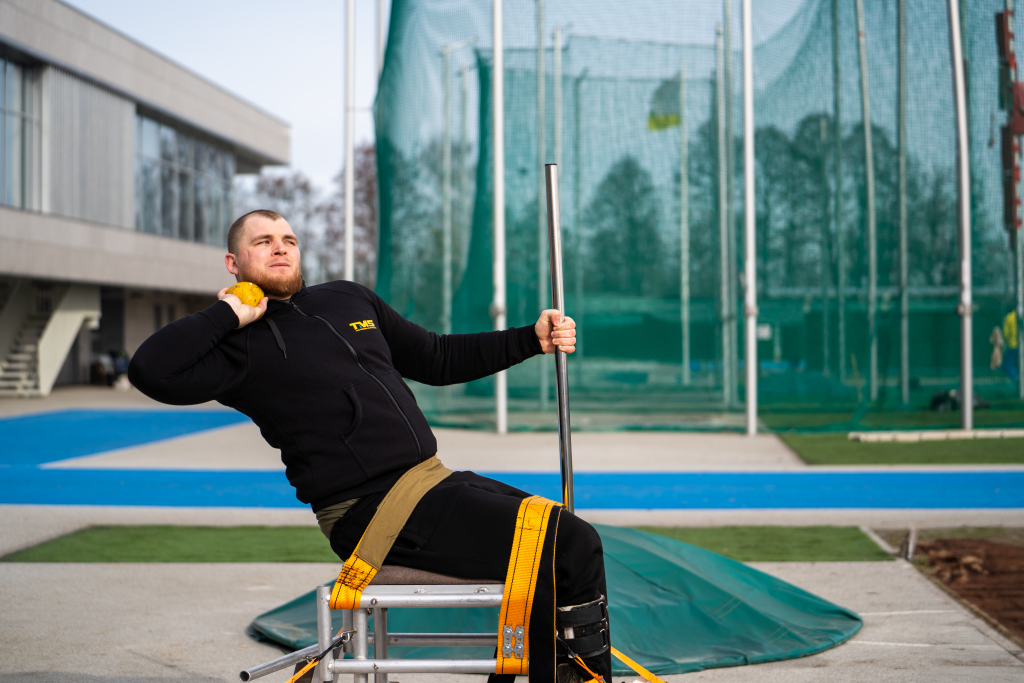
I don’t know where the videos of civilians being shoved into buses on the street come from. We do not use such methods. Nowadays, everything that happens during the day with an officer who delivers draft notices is recorded on a body camera. Such videos on the Internet are very demotivating for us and stress people, who are afraid to go to recruitment centres to update their military data.
I would like to learn how to operate drones and join a UAV strike group. I haven’t chosen a unit yet. The unit I wanted to join didn’t accept me because of my injury. I dream that fewer of my comrades will die. To do this, we need drones and those who know how to operate them. Drones save the lives of personnel. If we have a lot of UAVs, we will be able to repel the enemy with a large number of their losses. Society needs to unite around this idea.
Serhiy Dubov, 43, Mariupol
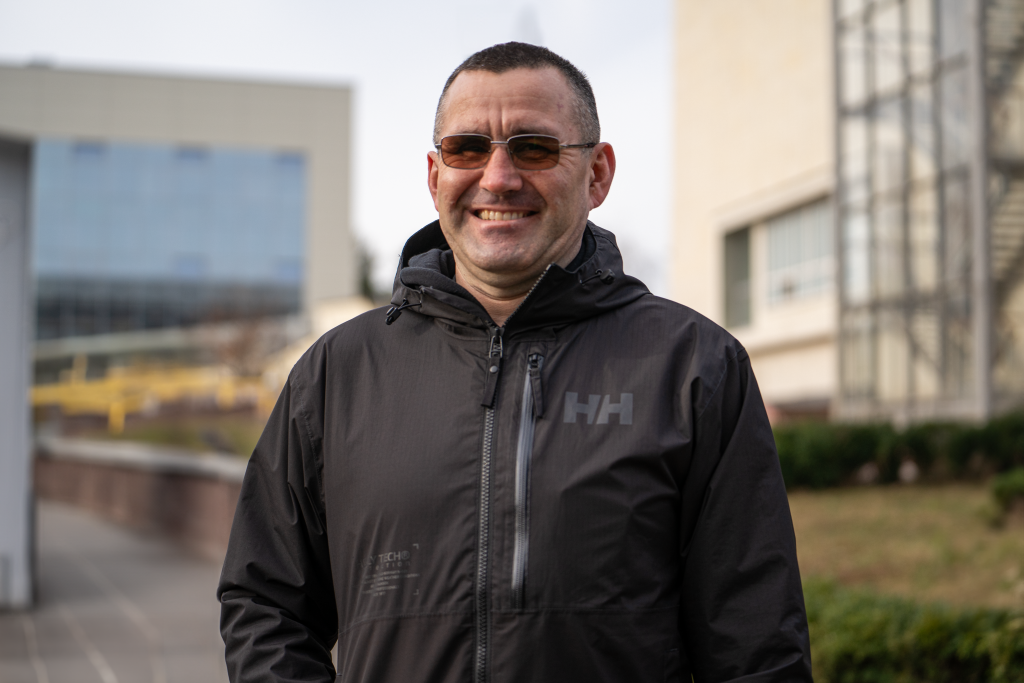
Siegle
— Since 2015, I served in the Donetsk Border Guard detachment. I spent all eight years on the contact line. Outside of service, I did repairs at home in Mariupol, went fishing, and generally enjoyed outdoor activities, spending time with my family – I have a wife and three children.
Since February 22, 2022, my comrades and I had been in the deployment, so on the morning of February 24, we heard the shelling of Mariupol. We were responsible for the northwestern part of the city. They reached it four days later, when Mariupol was besieged. We were simply destroyed – shelled with all kinds of weapons.
We were taken from our positions to the industrial zone. We spent two days recuperating there, replenished our ammunition, took some provisions and returned. At that time, there were already many border guards in that area, and the National Guard had arrived. All of us joined the battle. Four tanks fired at us. Two days later, 50 out of 120 people came out alive, including the wounded. Then we went out in groups, completed our missions and returned to the industrial zone. During the entire time of the siege of Mariupol, I did all kinds of different things: I was a driver, a scout, and a sniper.
In the first days of March, mobile communication was cut off in Mariupol. I did not know where my family was
In the first days of March, the city lost mobile communication. I did not know where my family was. We lived on the left bank, so I went there to look for them – that part of the city was not fully occupied. I found them and brought them to the centre, to a shelter near the Drama Theater. I visited them several times. We tried to bring food and water to civilians in the shelters.
On March 24, when the centre was already occupied, my wife decided to head towards Zaporizhzhya by foot. She did not want to be evacuated via Russia. On the way, they ran into a bus that picked them up and took them out. I did not know until the last moment what had happened to them. And that was the hardest part.
Wounded and captured
At that moment, street fighting was in full swing in the city. The shelling was incessant. On March 24, we were moving from one position to another as a group when a shell landed nearby. It hit me and two other comrades harder, and three others had lighter injuries. Then we had to be evacuated – I even walked some distance without help. When we got to Azovstal, I fainted. I woke up and saw that my arm was gone.
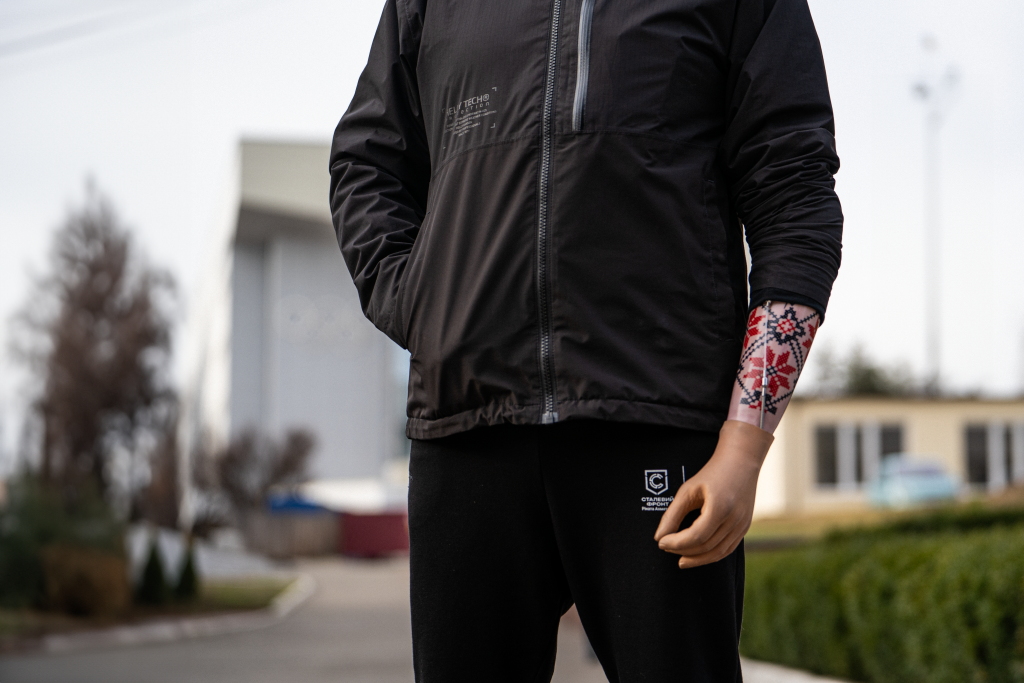
“I got a severe contusion, they had to take the shrapnel out of my body, and my eyes could not see at all. Later, my left eye was restored, but my right eye is still blind.
When I felt that my arm had been amputated, I was not too upset. It was not the worst thing that could have happened to me
By that moment, I had seen enough death. People were torn apart before my eyes. Once, the head of my comrade, in a helmet, fell at my feet. So when I felt that my arm had been amputated, I was not afraid or very upset – it was not the worst thing that could have happened to me.
After that, there was captivity. We were taken to Olenivka. There I was just lying on the concrete for 10 days. Later, the wounded were transported to a hospital in Donetsk. They were not treating us like people. For example, they would make a bandage once a month using the same bandage.
On June 29, I was exchanged. I learned that I was returning home only when I got off the bus. Before that, there had been two failed attempts – something went wrong. The first thing I did was call my wife.
Life goes on
After the exchange I spent four months in hospitals. I found a prosthesis through charitable organisations. But it is non-functional – it does not replace the arm, but only disguises its absence. I have another, better one, but it broke and I am urgently looking for a place to fix it before the competition. To get a high-quality and comfortable prosthesis, you need to get on the waiting list – now they are scheduled for 5 years in advance.
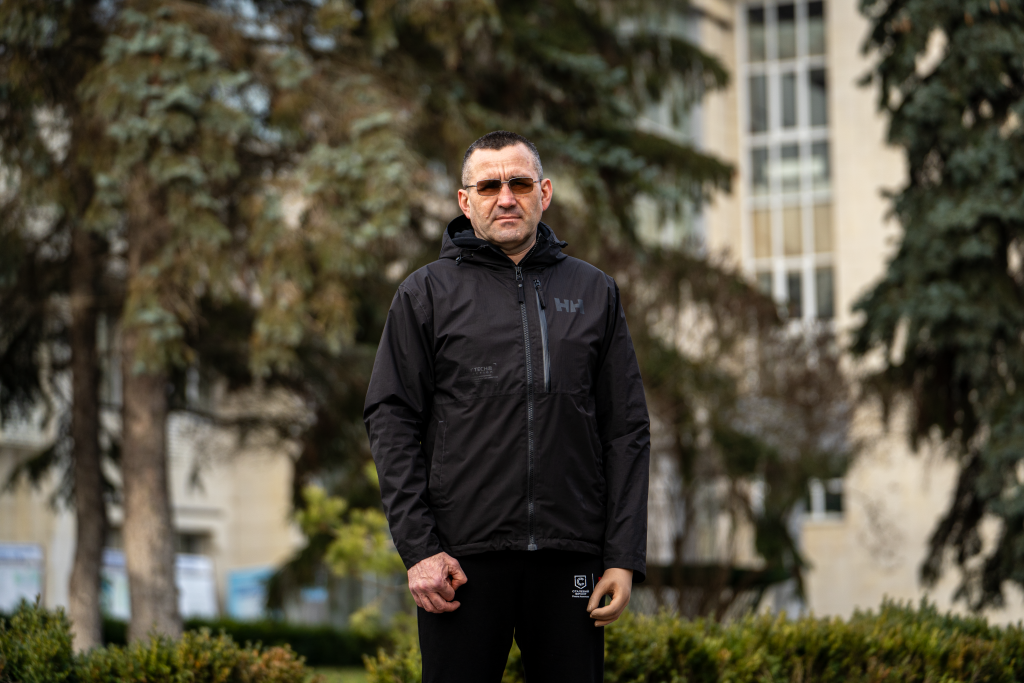
I resumed playing sports in captivity – I tried to do squats and ABS workouts. It gave me strength. If you get physically tired, you rest mentally. After all the hospitals, I began to do more exercise. It liberated me from all that “weight” I had inside me after the whole experience of the war. Sport became the biggest part of my rehabilitation.
In captivity, I lost more than 30 kilograms and my health. But here I am, working on myself, tempering my body and spirit.
After recovery, I returned to service. Now I am guarding the state border in the Lviv region.
At the United States Air Force Trials 2024, I will compete in cycling and rowing. Participation in such a competition also gives me a community – new acquaintances and friends. These trainings mobilize the mind. I want to show the guys returning from the war that everything is possible. They need to pull themselves together. I lost more than 30 kilograms and part of my health in captivity, but here I am, working on myself, tempering my body and spirit.
Dmytro Tereshchenko, 20, Chernihiv
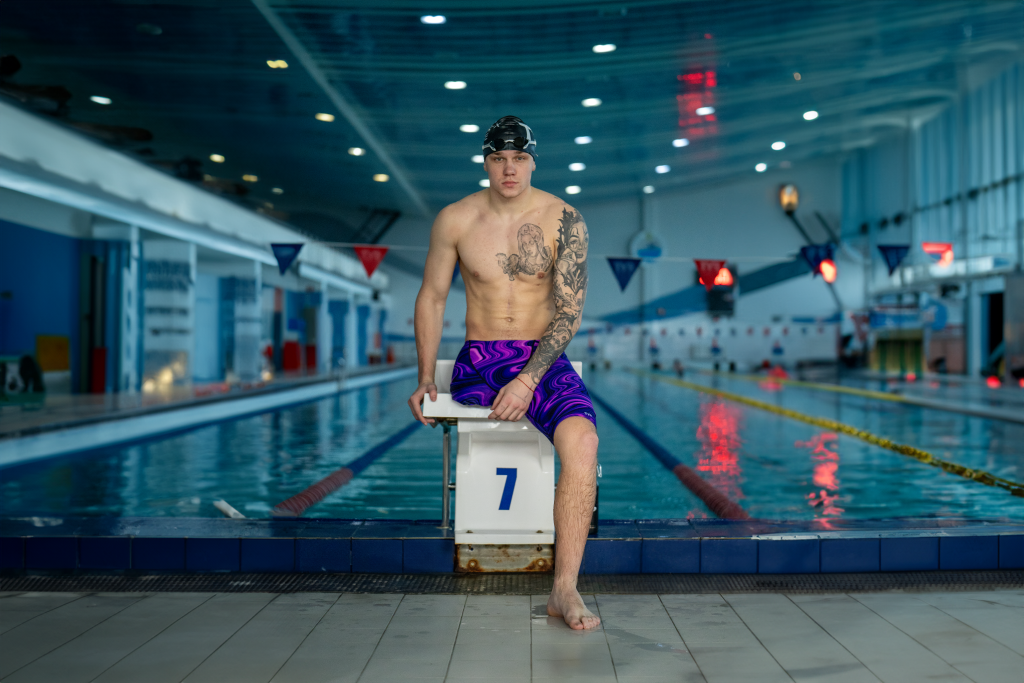
Where to find weapons?
— In mid-February 2022, I returned from a competition abroad – I had been boxing professionally for 11 years. I was resting, studying at the university to become a fitness coach. On the morning of the 24th, I received a call from a friend, then from a girlfriend, who both told me that a full-scale war had begun.
I heard a siren for the first time and went out to the balcony. There were old ladies standing on the street, crossing themselves and saying that soon they might have to pay in rubles. Either people were desperate because of russia’s rapid advance in the region, or they were influenced by disinformation.
All I thought about in the early days was where to find weapons. Sometimes I went to the training grounds with my military friends, and they taught me how to handle firearms. At first, the military enlistment office refused because of my age – I had just turned 18. The second attempt was successful, and I got into the 119th Separate Brigade of the Territorial defence as a machine gunner.
On February 26, I received my weapon, and half an hour later we went on our first mission.
The queue was huge, there were a lot of women, and I respect them a lot. On February 26, at 10 pm, I received my weapon, and half an hour later we went on our first mission. We were clearing enemy positions, setting up observation posts, and going on assaults. This lasted for two months, up to the complete de-occupation of the Chernihiv region. Then there was training: tactics, medicine, cartography, engineering.
The sun and the “Grad”
In December 2022, we received a combat order for rotation. We ended up in the Luhansk region, in the direction of Kreminna. I had been fighting there for three months until I was wounded on March 13.
We went to our positions at night. We worked all day. The weather was great – sunny, dry. Everyone was in a positive mood. We worked on clearing the area, and our landing party hit two enemy targets. Everything was calm. And then the shelling started. I think it was Grad. Everyone was hit.
The platoon commander was killed immediately. The commander of the squad lost his leg. I didn’t feel my leg and was not able to look at it properly. There was dust and smoke, the guys were screaming from shell shock, and I was hysterical – unable to understand anything. But somehow I managed to get my bearings in time to put on the tourniquet. We called for help.
I stayed there for more than ten hours. I could feel the blood flowing out of me.
It so happened that everyone was evacuated except me. A massive shelling started and they did not have time to throw me into the medevac. I stayed in the evacuation zone for more than ten hours. My comrades who came from other positions were with me. They put two more tourniquets on me and gave me something to drink. I heard that I would be evacuated only at night. I did not believe I would survive, but I hoped.
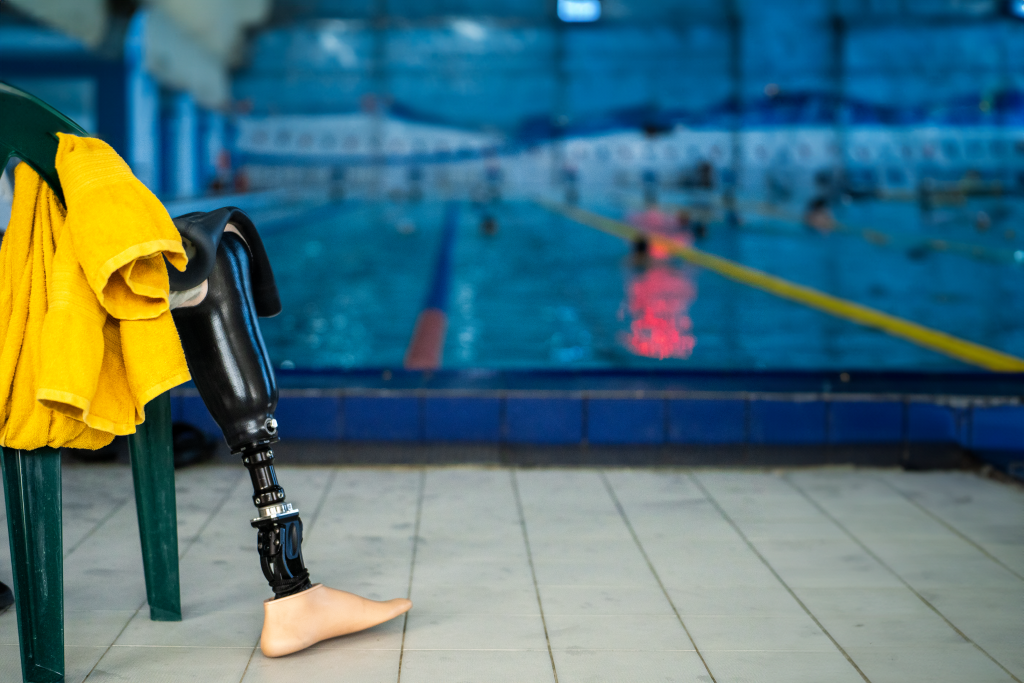
During all those ten hours I was saying goodbye to my comrades. When the first star appeared in the sky, I was already wheezing. I could feel the blood flowing out of me. I prayed and thought about the will I had written beforehand.
The war in the east was very different from the one in the Chernihiv region. I saw a lot of deaths. This gave me the idea to write a will at the age of 19: to distribute my savings, leave words of gratitude and farewell to my mother and brother.
Amputation is not a sentence
When it was completely dark, an evacuation team came to pick me up. They took me to a staging area, then to a hospital in Kramatorsk. My kidneys were failing due to a large blood loss, I was in as critical condition as it could be.. I managed to record a video message to my mom. I told her that there was good and bad news – that now I could save money on socks. She got hysterical, but quickly calmed down, got ready and went to Dnipro, which was the next place I was supposed to be taken to.
In the hospital, I was connected to medical devices. The shrapnel tore my stomach, lungs, and shoulder. Due to the fact that my leg had been stuck in three turnstiles for ten hours, it could not be saved, and was amputated. I asked to take a picture with it afterwards, but they did not allow it.
I realised how my life had changed only when I got off the medication. After Dnipro, they brought me to Kyiv, where I had several re-amputations – higher and higher. I could not even sit, it was too painful. But I realised that I would have a prosthesis and amputation was not a sentence.
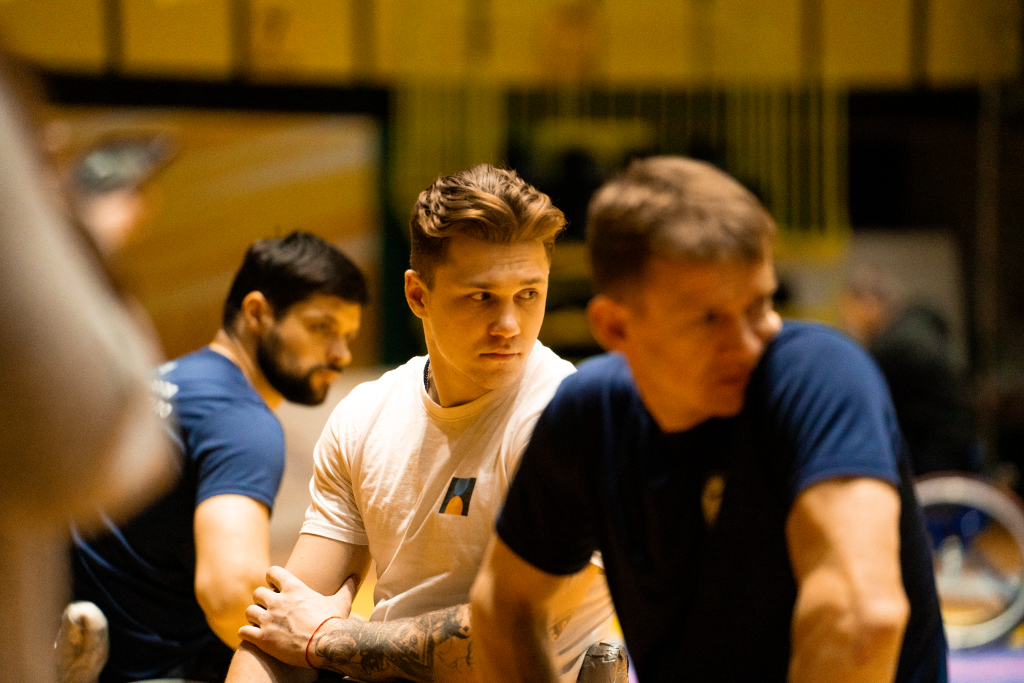
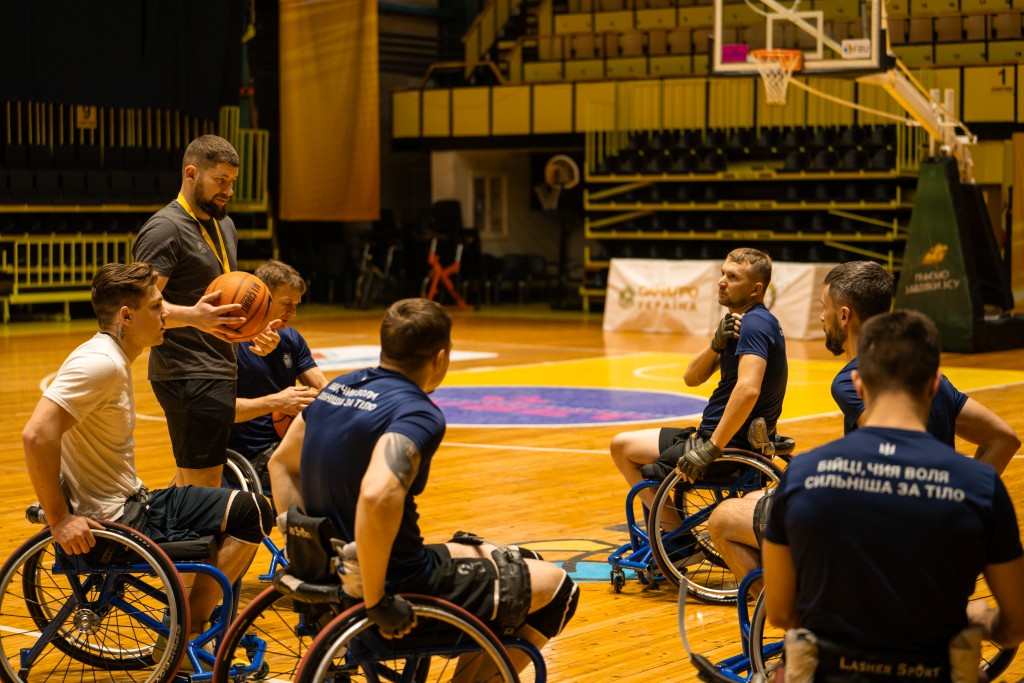
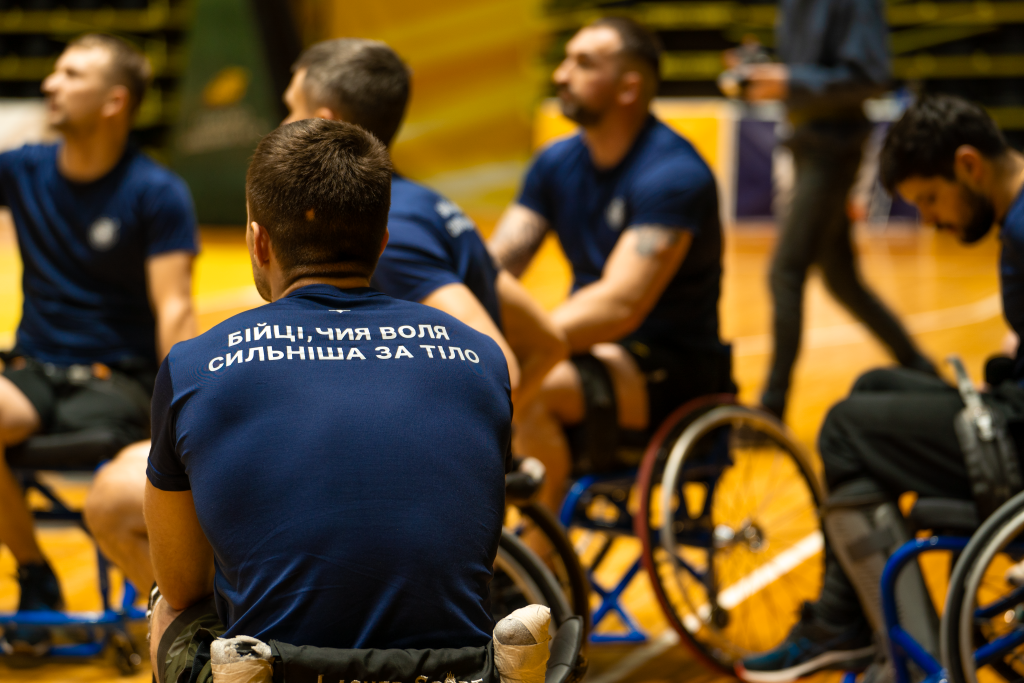
In Ukraine, there are no prostheses for such a high amputation as mine. So in August I flew to the United States. One of the foundations took me under their care – they provided me with an electro bionic knee unit and carried out full rehabilitation.
One of the most important things for me and all soldiers with serious injuries is psychotherapy. PTSD is a very scary thing that can lead to suicide. Thank God, I didn’t get to that point. But I lost a lot of friends, my relationship with my girlfriend, and my communication with my mother deteriorated. I withdrew because I needed time to accept a new life.
I tried modelling in the US when I came to get prosthetics. I met people who offered me several photo shoots. I plan to develop further in this field. In America, models with disabilities are treated tolerantly, so this business is very developed. In Ukraine, it is still difficult. But more and more soldiers with disabilities are returning from the front, and perhaps this will change the situation.
When my wounds healed, I gradually began to return to training. Later, I competed in the two-kilometre swim at the Oceanman Ukraine competition in Kyiv.
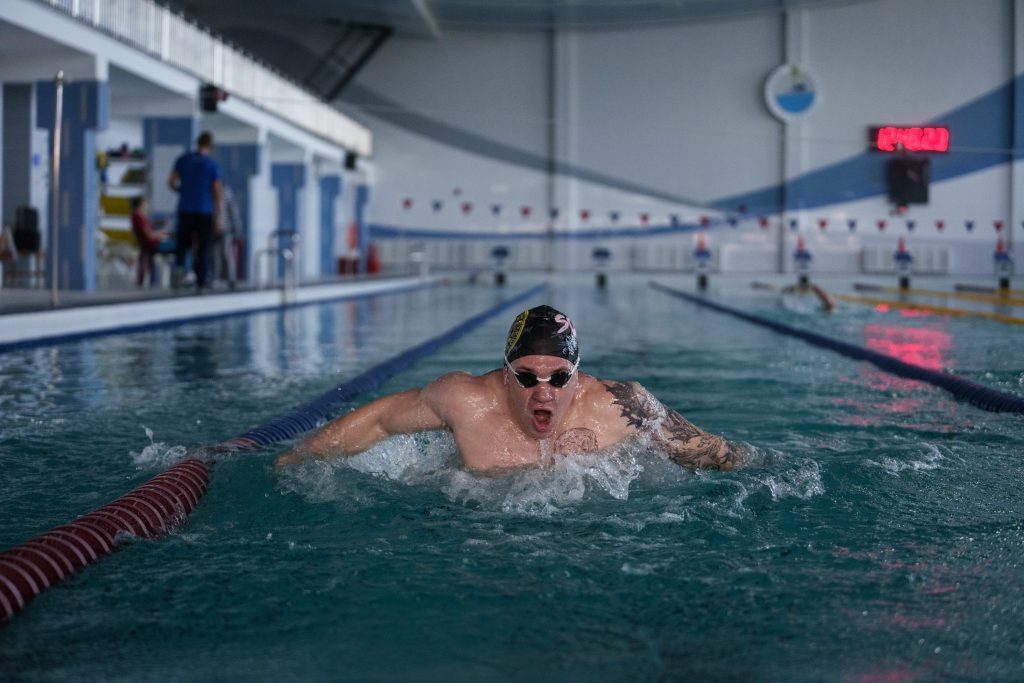
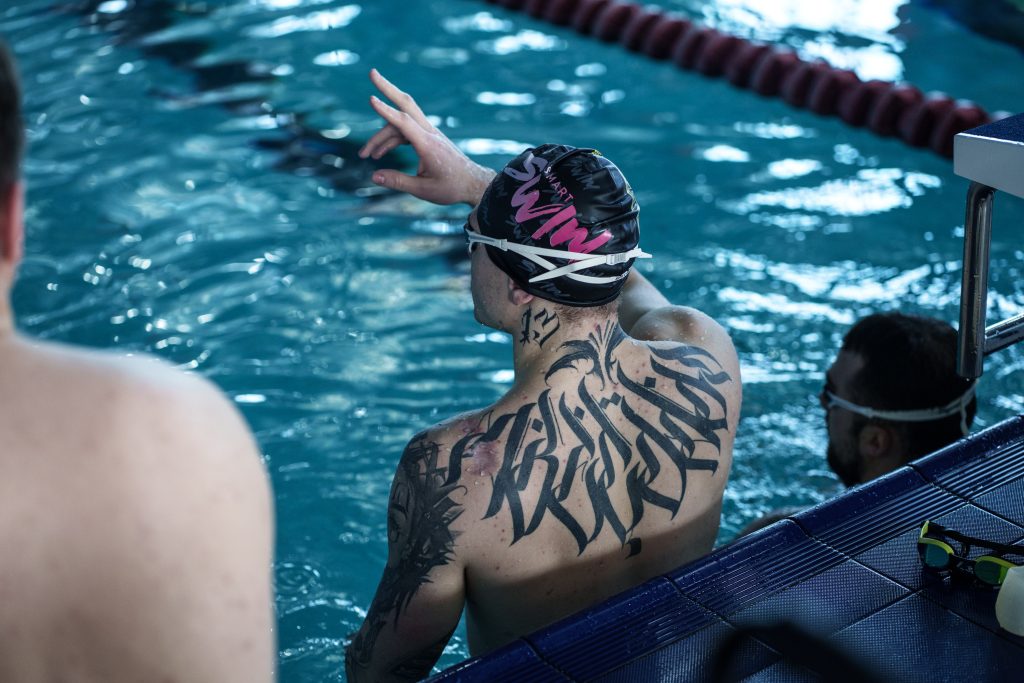
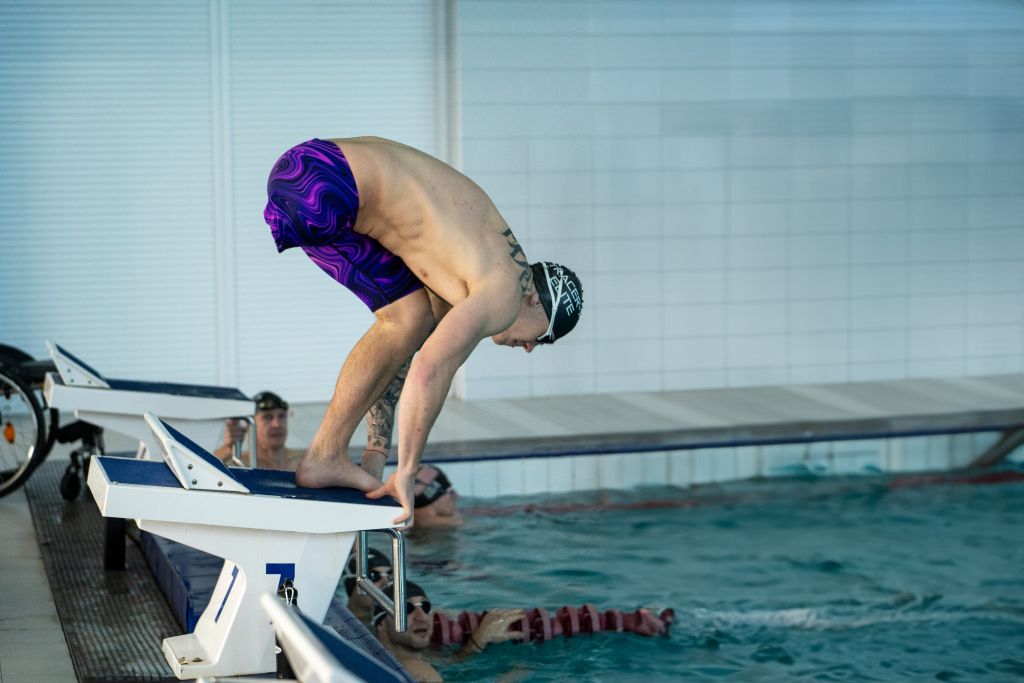
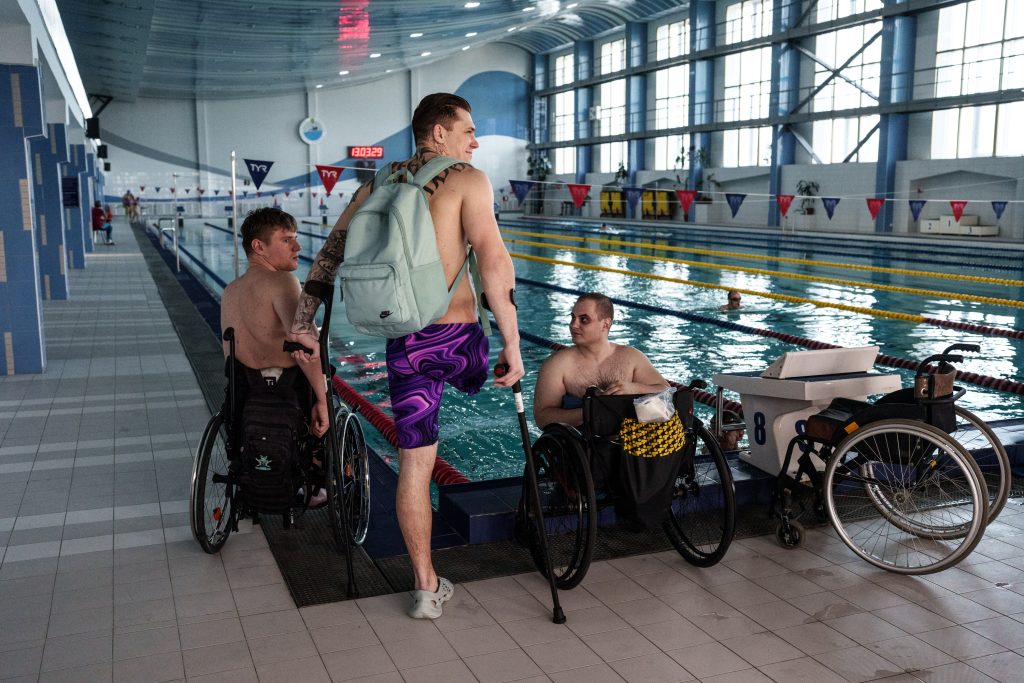
Sport changes you not only externally but also internally. The community I have found while preparing for the United States Air Force Trials 2024 gives me great motivation to mature and grow up. I will be competing in swimming, rowing, and wheelchair basketball.
Participation in international competitions is an opportunity to tell the world once again that there is a war in Ukraine and we need help and support.
I want to continue to help my country. To give confidence to the wounded military that life does not end there.
Our country still has a long way to go to become inclusive and barrier-free, so that people who sacrificed their health in the war would feel comfortable living here. I hope it will happen.
The organisation of Ukraine’s participation in the United States Air Force Trials 2024 is a joint initiative of the Ministry of Veterans Affairs of Ukraine, the Ukrainian Veterans Fund, the NGO Come Back Alive, the Stratcom Ukraine Center for Strategic Communications, and the NGO Invictus Games Ukraine.
Read the short stories of all the team members here.
More on topic
"Benefits and social guarantees for veterans should make sense"
23 Aug 2023, 18:13